The annual Hutchins Forum came back to the Old Whaling Church Thursday evening, bringing with it a tense discussion about affirmative action admissions practices at elite colleges and universities.
This year's forum, titled The Rise and Fall of Affirmative Action, was hosted by Harvard University’s Hutchins Center for African and African American Research and PBS NewsHour. It comes less than two months after the court released decisions in cases brought against Harvard and the University of North Carolina at Chapel Hill, declaring the consideration of race in college admissions unconstitutional.
“Affirmative action held great promise, and thus came to be seen as a great threat,” Henry Louis (Skip) Gates, Jr. said as he introduced the central question of this year's forum — was the majority of the Supreme Court right to declare the practice unconstitutional?
The event was hosted by Mr. Gates and moderated by journalist Charlayne Hunter-Gault, who, in 1961, was one of the first Black students to enroll at the University of Georgia where she studied journalism.
After a short discussion of Brown v. Board of Education, a landmark Supreme Court ruling that mandated the desegregation of American schools in 1954, the group of experts were quickly divided on the court’s decisions.
Melissa Murray, a law professor at New York University and an expert on the legal regulation of intimate parts of American life, questioned why the cases were heard by the court in the first place.
“I think there are misconceptions about what the affirmative action programs that were challenged in Students for Fair Admissions v. Harvard and UNC actually did,” she said, explaining that the programs required race to be only one of many factors, like test scores, geography, and essays.
“You will have to show me where race was the determinative factor,” Ms. Murray said. “Because in that broad, holistic calculus, it seems like a lot of different things were at work.”
She said it wasn’t clear to her that there was a race-based injury in the cases against Harvard and UNC.
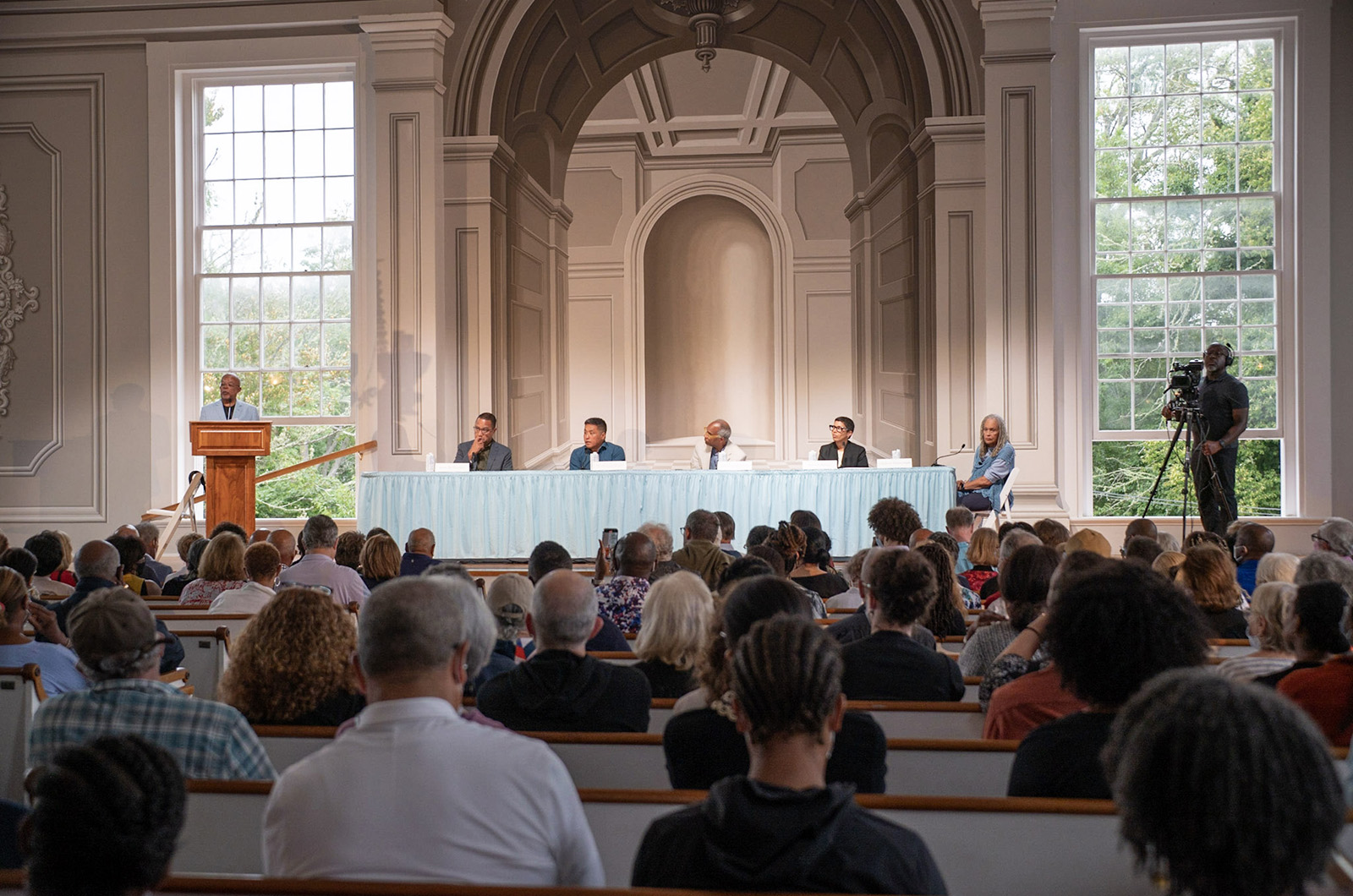
Jay Caspian Kang is a staff writer for The New Yorker, an Emmy-nominated documentary filmmaker and an author who has reported and written extensively on affirmative action and Asian American identity.
He disagreed with Ms. Murray, saying he found evidence of discrimination against Asian American applicants to elite institutions both credible and surprising. Though he said he supports affirmative action as a broad idea, his reporting made him wonder if the programs were part of the right path to a more equal country.
“Are there more important things that could be used in that and to try and achieve a type of egalitarian society?” he asked.
Randall Kennedy, a law professor at Harvard, said the court’s decision was terrible.
“It was a decision that we'll look back on like we look back on some of the horrible decisions of the late 19th century, early 20th century,” he said.
He said he believed the court wrongfully took power over an issue that should be up to the states, pointing out that nine states had already legislated the elimination of affirmative action programs in admissions processes.
“What that means is that the Supreme Court actually has said to us, and said to the citizenry, we actually don't want you to have conversations like the one we're having here,” Mr. Kennedy said.
John McWhorter, a professor at Columbia University’s Center for American Studies, criticized Mr. Kennedy’s forceful tone.
“Volume cannot be treated as a convincing argument,” he interrupted Mr. Kennedy to say.
Mr. McWhorter said the June rulings are “justice done,” because colleges shouldn’t be lowering standards for certain applicants because of their race.
“Notwithstanding the fact that structural racism remains to an extent,” Mr. McWhorter said. “Being Black alone isn't enough of a concrete comparative disadvantage compared to all other people for us to set aside standards lowering policies.”
He thought affirmative action programs should be revised to consider “whether you came up hard, whatever color you are.”
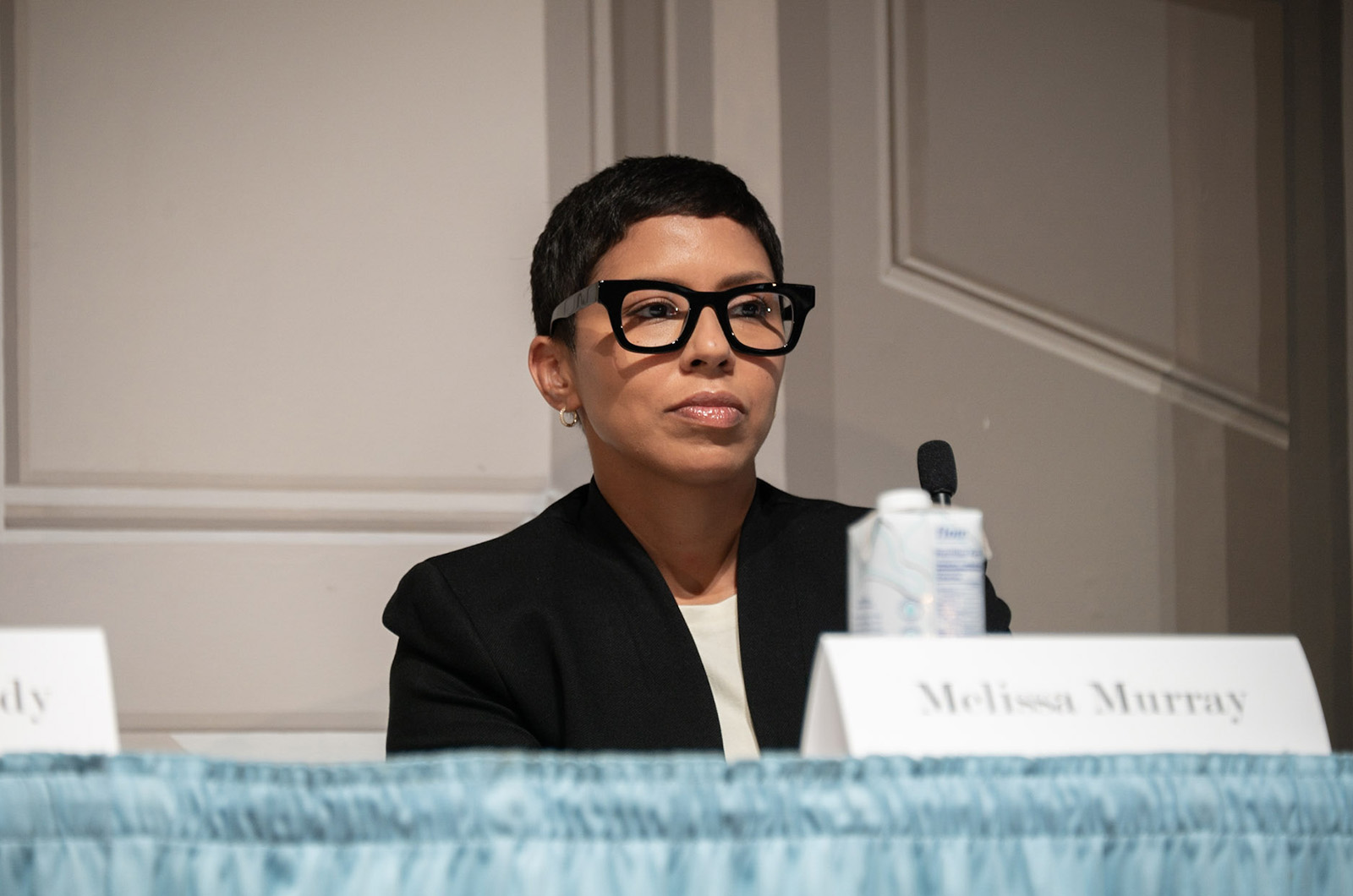
He specifically disagreed with Mr. Kennedy’s comparison of the cases to cases decided in the era of Jim Crow laws.
“I don't think they deserve that kind of fury,” she said. “I think that we should reason more closely about these things.”
The panel’s respondent, professor Laurence H. Tribe of Harvard Law School, weighed in at the end of the discussion to say the majority opinions in each of the cases were incoherent. He described the court as “a court largely in name only,” saying the majority’s agenda was getting in the way.
He also took time to weigh in on the disagreement between Mr. Kennedy and Mr. McWhorter.
“Fury isn’t an argument, but neither is criticizing someone's tone of voice,” he said to Mr. McWhorter.
The audience had an opportunity to ask questions, and 12-year-old Cameron Hendrick stood up to ask what this all meant for her generation.
“What do you think the future of education looks like?” she asked. “How do you think that the next generation, my generation, can prepare for the changes?”
Mr. Kennedy answered her question, telling her and the audience that he believes the country is in for a “season of continued struggle.” However, people need to remember the power they have at the ballot box, he said.
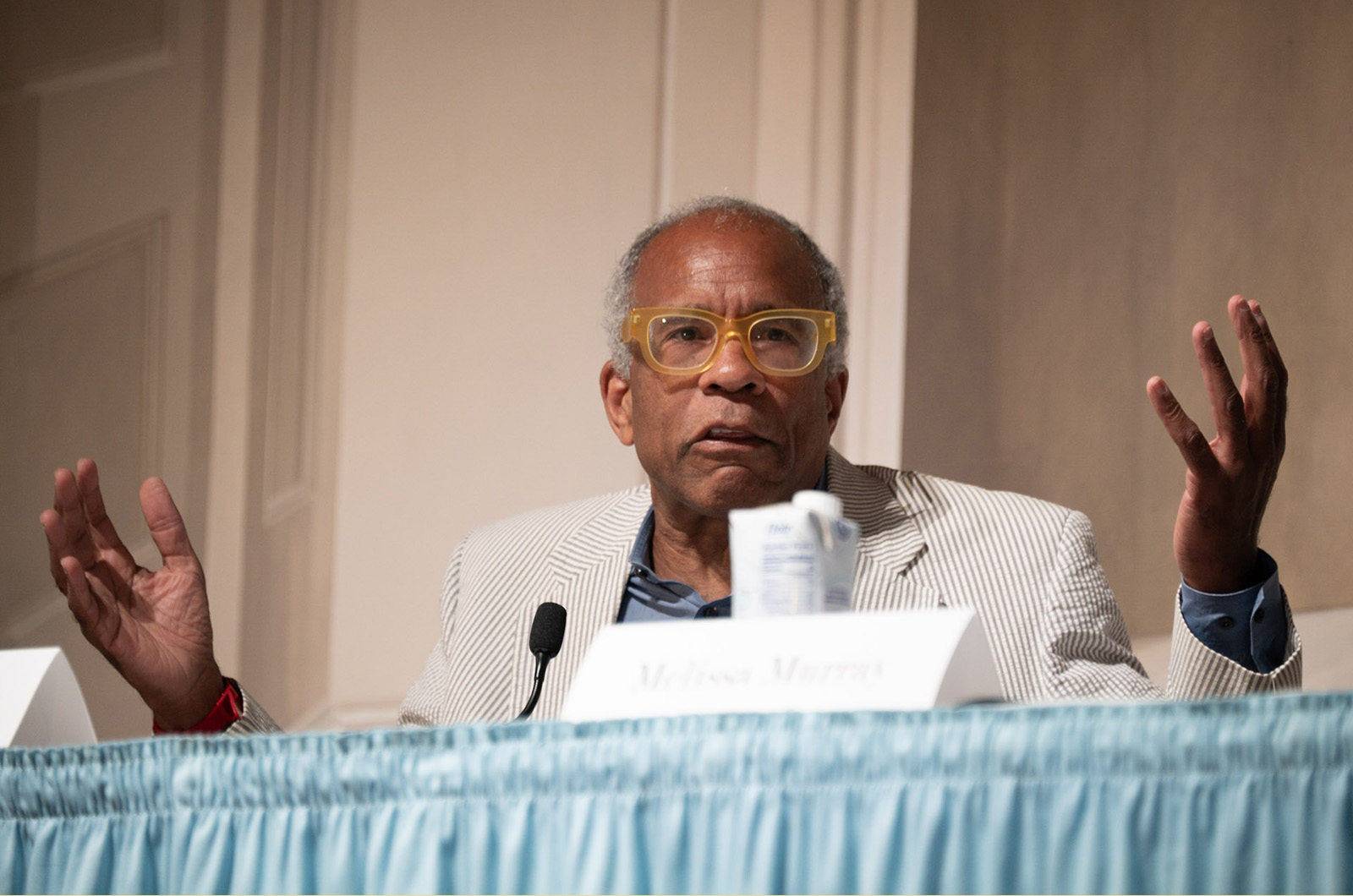
“The Supreme Court’s justices don't just, you know, fall down from the sky. The Supreme Court justices come from politics,” he said. “So people need to, you know, get up and get mobilized and make their contribution where they can make it.”
Cameron visits the Island every summer and came to the event with her mother JocCole Burton. She said she is interested in politics and learned a lot at the Hutchins Forum.
“I learned more about how far we have come from laws and rules that kind of prohibited from people of different nationalities and races to get education,” Cameron said after the event ended. “But I also learned how far we still have to go.”
A recording of the event is available to stream on the PBS NewsHour website.

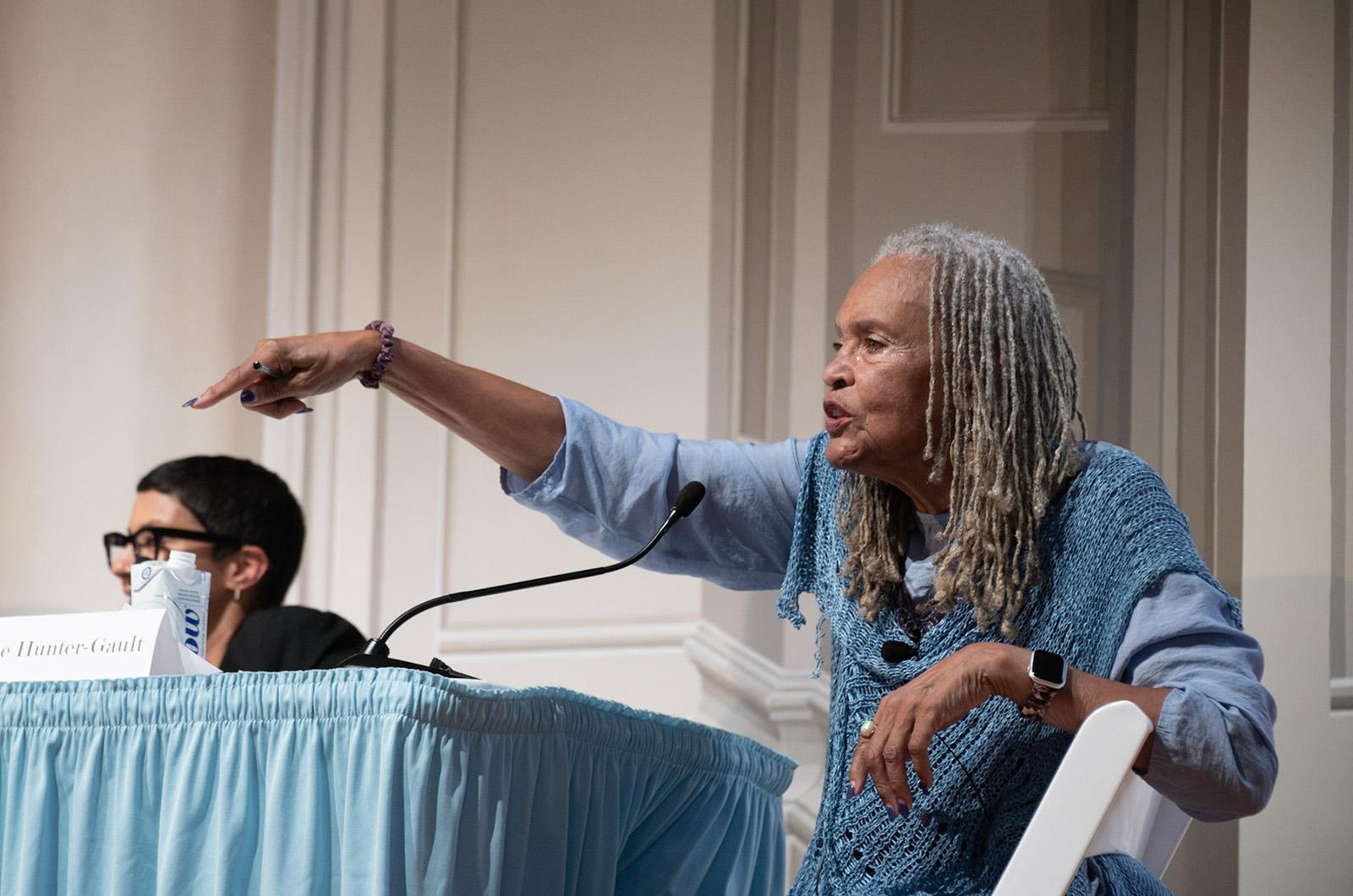
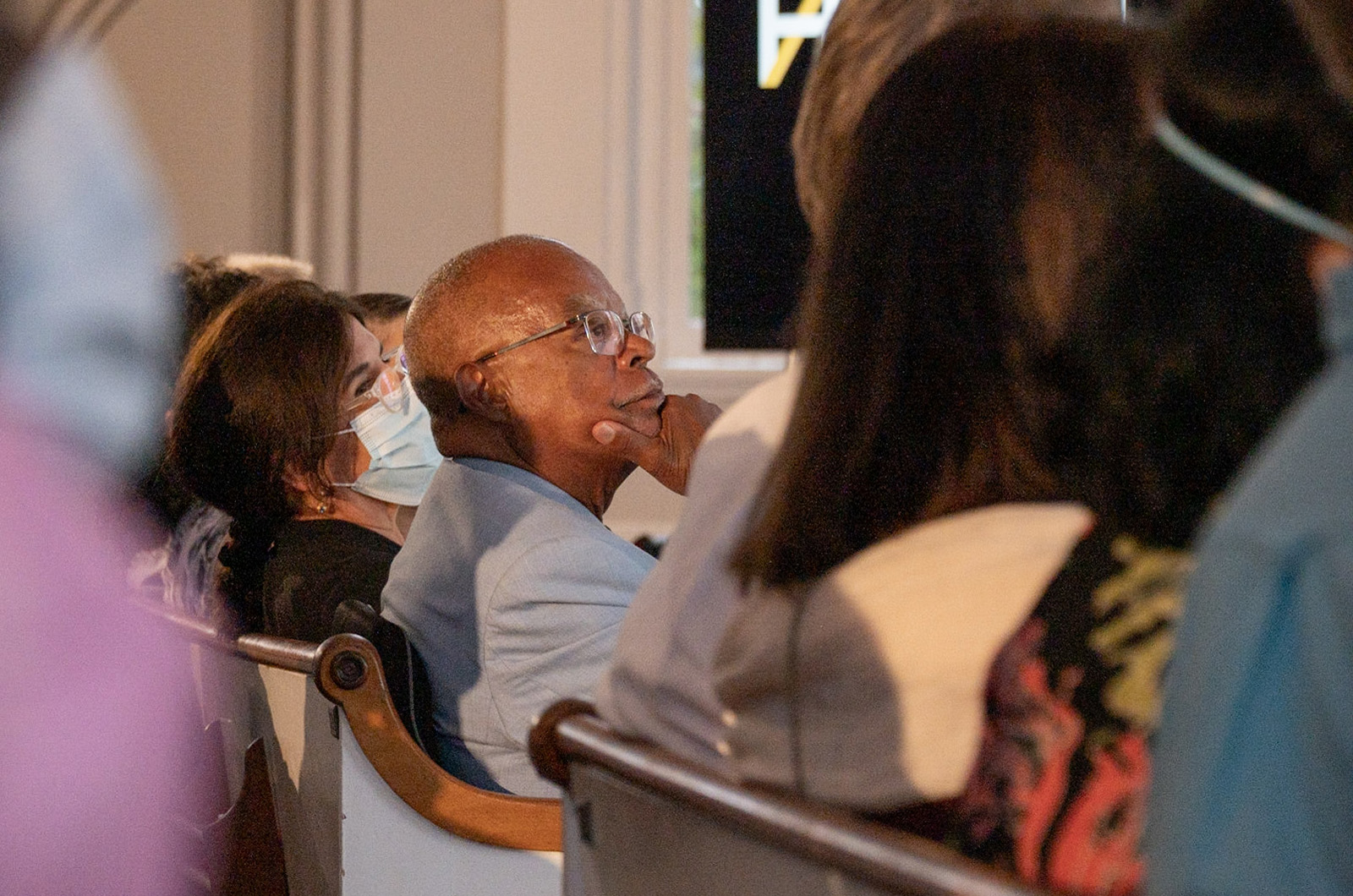
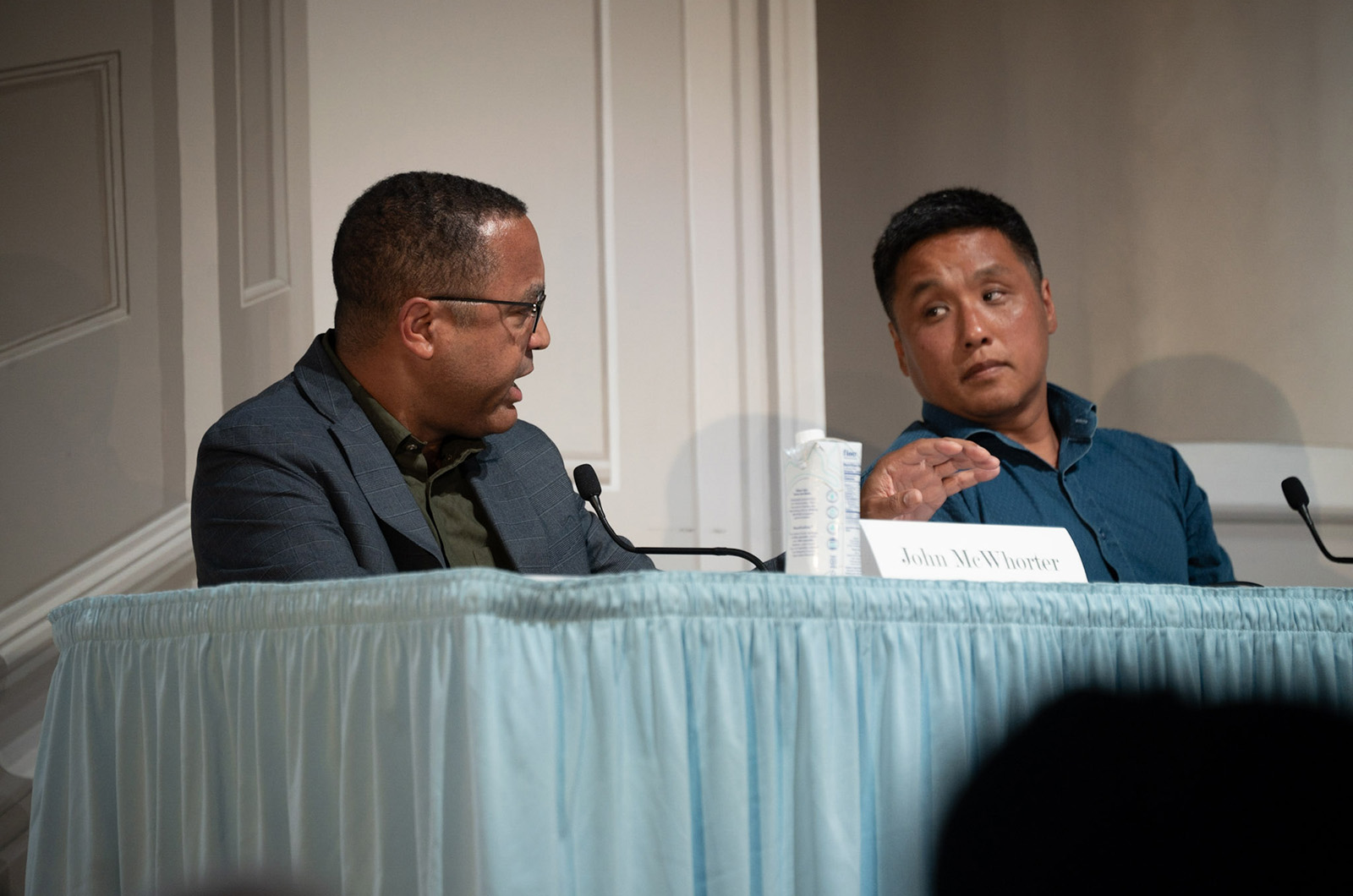





Comments
Comment policy »